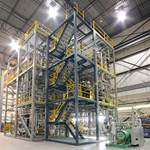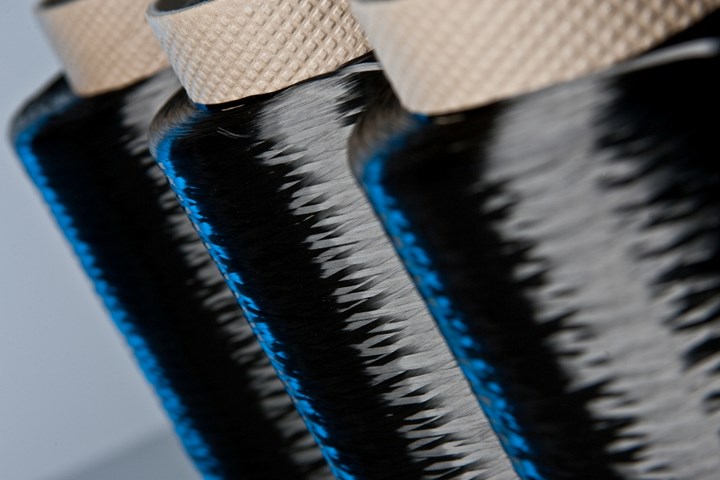Teijin to produce, sell Tenax carbon fiber from certified, sustainable raw materials
Acrylonitrile to be used in Tenax uses waste and residue from biomass-derived products or recycled raw materials that are ISCC Plus certified, maintaining same performance properties as conventional-based products.
Teijin Ltd. (Tokyo, Japan) has announced that it will begin production and sales of Tenax carbon fiber made with sustainable acrylonitrile (AN). The AN uses waste and residue from biomass-derived products or recycled raw materials that have received International Sustainability and Carbon Certification (ISCC) Plus certification. The certified carbon fiber will be produced at Teijin’s Mishima plant in Shizuoka Prefecture, Japan, using the mass balance approach. With this method, materials are verifiably tracked through complex value chains, for example, when biomass-derived raw materials are mixed with petroleum-derived raw materials to create products.
This initiative will advance the Teijin Group’s efforts to minimize the negative impact on the environment and society associated with its business activities. The company strives to protect the global environment in accordance with its long-term vision.
To produce this carbon fiber, Teijin procures ACN manufactured under ISCC Plus certification from suppliers that have obtained this certification. The sustainable AN has the same physical properties as petroleum-derived AN, Teijin notes. Tenax carbon fiber based on this material delivers the same performance attributes and processing as equivalent fossil-based Tenax products. This similarity enables customers to easily drop in Tenax carbon fibr made with bio-based or circular materials, helping to reduce greenhouse gas (GHG) emissions throughout the product lifecycle.
Teijin aims to expand its lineup of sustainable products, so the company is pursuing ISCC Plus certification not only for carbon fiber, including precursor, but also for intermediate products such as prepreg and short fiber which use sustainable raw materials. Further, to strengthen production of sustainable products globally, the company is proceeding with activities to obtain ISCC Plus certification at overseas locations. Teijin’s European facilities are expected to obtain certification in early fiscal 2024, and U.S. facilities should obtain certification during fiscal 2024.
With growing pressure to reduce GHG emissions throughout a product’s lifecycle, the materials industry is striving to reduce the environmental impact of manufacturing processes involving carbon fiber throughout the supply chain. Under these circumstances, Teijin switched the fuel for in-house power generation equipment at manufacturing sites from oil-fired power generation to natural gas in 2017. Additionaly, Teijin established lifecycle assessment (LCA) evaluation for carbon fiber products related to its products in 2021 and 2022. Furthermore, in June 2023, the company obtained ISCC Plus certification for Tenax carbon fiber and the polyacrylonitrile (PAN) precursor fiber produced at Teijin’s Mishima Plant in Shizuoka Prefecture, Japan.
Related Content
-
Plant tour: Teijin Carbon America Inc., Greenwood, S.C., U.S.
In 2018, Teijin broke ground on a facility that is reportedly the largest capacity carbon fiber line currently in existence. The line has been fully functional for nearly two years and has plenty of room for expansion.
-
Jeep all-composite roof receivers achieve steel performance at low mass
Ultrashort carbon fiber/PPA replaces steel on rooftop brackets to hold Jeep soft tops, hardtops.
-
Welding is not bonding
Discussion of the issues in our understanding of thermoplastic composite welded structures and certification of the latest materials and welding technologies for future airframes.

















